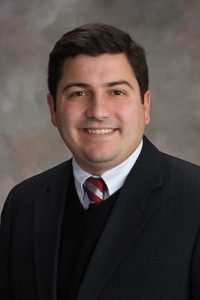State employee volunteerism considered
A bill that would allow state employees to volunteer in Nebraska schools during work hours was considered by the Government, Military and Veterans Affairs Committee Feb. 8.

Under LB655, sponsored by Gretna Sen. John Murante, a state employee could — with a supervisor’s authorization — participate in volunteer activities at a public elementary, middle or high school, or nonprofit organization that focuses on such education, during normal work hours without loss of pay, vacation time, sick leave or earned overtime accumulation.
Murante called the bill a creative solution to meet the need for mentors in Nebraska public schools during difficult fiscal times. Many private sector employers offer paid volunteer time to their employees because it increases job satisfaction, he said.
“Allowing and encouraging employees to volunteer makes good business sense,” Murante said. “Employees who volunteer through work experience an increase in job productivity and performance.”
As introduced, the bill would not apply to an employee or officer of the state whose salary is set by the state constitution or in state law. Local government employees also would not be covered by the bill’s provisions.
Murante said he would offer an amendment to expand the bill’s scope to cover employees of any political subdivisions. The amendment also would allow each agency to determine whether or not to participate in the program.
“This bill is permissive,” he said. “It’s not a mandate.”
Tom Osborne, representing the TeamMates Mentoring Program, testified in support of the bill. Young people who have mentors see a decrease in anti-social behavior and disciplinary problems, he said, as well as increased odds of graduation and college attendance.
“We find that young people who have a mentor are much more hopeful about the future,” Osborne said. “Hope is a big deal. If you have hope in your life, things get better.”
Mentees also benefit, Osborne said, adding that LB655 could enhance state employee job satisfaction.
“I think there are many state agencies with a lot of turnover where sometimes morale isn’t always the best,” he said.
Deb Denbeck, president of Partnership 4 Kids — an organization that serves 5,400 youth in Omaha Public Schools — also supported the bill. Encouraging state employees to engage in their communities would benefit the entire state, she said, by building strong relationships now and saving money in the future that would have been spent on social services for young people who fail to graduate from high school.
“If we don’t invest in our young people, our future is not going to be very bright,” Denbeck said.
Bo Botelho, an administrator in the state Department of Administrative Services, cautioned that the program would have to be constructed carefully, given the scrutiny that state workers face. Testifying in a neutral capacity, he said taxpayers may perceive the program as paying state workers to do something other than the state’s business.
“Our concern here would be the perception,” Botelho said.
No opposition testimony was offered and the committee took no immediate action on the bill.

